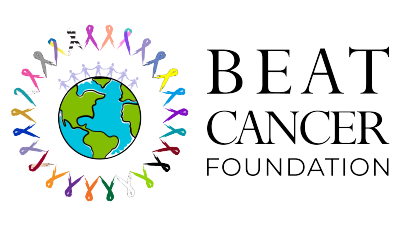
The Alkaline Diet

The Alkaline Diet: A Key Component in Cancer Treatment and Recovery
The alkaline diet is based on the premise that consuming more alkaline-forming foods can help maintain a healthy acid-alkaline balance in the body, which in turn will promote overall health and well-being. The alkaline diet is a key component of cancer treatment, designed to support the body's immune system and create an environment that is less conducive to the growth of cancer cells. This diet focuses on the consumption of whole foods, fruits, and vegetables while eliminating sugar, white flour, soda, meat, and dairy products, which can feed or excite harmful microbes. The importance of the alkaline diet during cancer treatment patients can improve their overall well-being and support their immune system during treatment.
Strengthening the Body's Defense Against Cancer
An alkaline diet is essential for those undergoing cancer treatment as it helps to create an environment that is inhospitable to cancer-causing microbes. This diet excludes foods and drinks that are high in acidity, which can lead to increased growth and aggression of microbes, including those found inside cancer cells. Consuming whole foods, fruits, vegetables, nuts, and seeds can provide essential nutrients and antioxidants that support the body's efforts to fight cancer. These foods are generally anti-inflammatory, which may help reduce the risk of chronic diseases. Additionally, by limiting processed foods, refined sugars, and unhealthy fats, the alkaline diet may promote weight loss and improve overall health.
The Exclusion of Meat in the Alkaline Diet
Meat is typically excluded from the alkaline diet during cancer treatment for several reasons. Firstly, meat consumption has been linked to an increased risk of certain cancers, such as colon cancer and prostate cancer, possibly due to high animal fat content or a lack of fiber. Moreover, meat uses up two critical enzymes - trypsin and chymotrypsin - which are vital for the immune system to kill cancer cells. Vegetable proteins do not have this effect.
Another reason to avoid meat is its potential to accumulate fecal matter in the colon, which can impede nutrient absorption during cancer treatment. It is crucial to maintain a clear colon to maximize nutrient absorption and support the body's healing process. Furthermore, meat contains hormones, such as diethylstilbestrol (DES), which have been linked to cancer in various reproductive organs. Meat may also contain nitrosamines, which can cause cancer in multiple organs, and chemical preservatives and color enhancers that can lead to the production of nitrosamines in the body.
Lastly, meat consumption can produce toxins in the blood if the digestive system is weak, and studies have shown that the incidence of cancer is directly proportional to the amount of animal proteins, particularly meat, in the diet. Conversely, nations and groups that consume less meat have lower cancer rates.
The alkaline diet focuses on consuming alkaline-forming foods while minimizing acid-forming foods. The idea is that by maintaining a slightly alkaline environment in the body, one can support overall health and potentially reduce the risk of chronic diseases and cancer.
Alkaline-forming foods include:
- Fruits: Almost all fruits, especially citrus fruits like oranges, lemons, and grapefruits, are considered alkaline-forming.
- Vegetables: Green leafy vegetables, such as kale, spinach, and collard greens, are highly alkaline, as well as other vegetables like broccoli, cauliflower, and carrots.
- Nuts and seeds: Almonds, chia seeds, flaxseeds, and sunflower seeds are alkaline-forming.
- Legumes: Lentils, chickpeas, and most beans are alkaline-forming.
- Some whole grains: Quinoa, millet, and amaranth are alkaline-forming grains.
Acid-forming foods to minimize include:
- Meat and poultry: Beef, pork, chicken, and turkey are acid-forming.
- Dairy products: Milk, cheese, and yogurt are considered acid-forming.
- Refined grains: White bread, pasta, and rice are acid-forming.
- Processed and sugary foods: Fast food, soda, and candy are acid-forming.
- Alcohol and caffeinated beverages: Beer, wine, and coffee are acid-forming.
In Conclusion
The alkaline diet plays a vital role in cancer treatment by creating an environment that is less supportive of cancer cell growth and by strengthening the immune system. We also know many foods, such as processed sugar, exacerbate cancer. Avoiding meat during cancer treatment is crucial due to its potential negative impacts on health and its lack of contribution to the healing process. By adhering to an alkaline diet that consists of whole foods, fruits, vegetable drinks, and other healthy options, individuals undergoing cancer treatment can support their health and well-being throughout the process. It’s hard to believe the digestive system is often a forgotten part of the healing equation in conventional cancer treatment.
“Knowing all your treatment options could be life-saving!”
Location
Sheridan, WyomingTogether, we can beat cancer
Thank you for your interest in the Beat Cancer Foundation. We are here to support you every step of the way in your cancer treatment journey. Please fill out the form below, and our team will be in touch with you shortly. Together, we can beat cancer. (307) 291-0991

